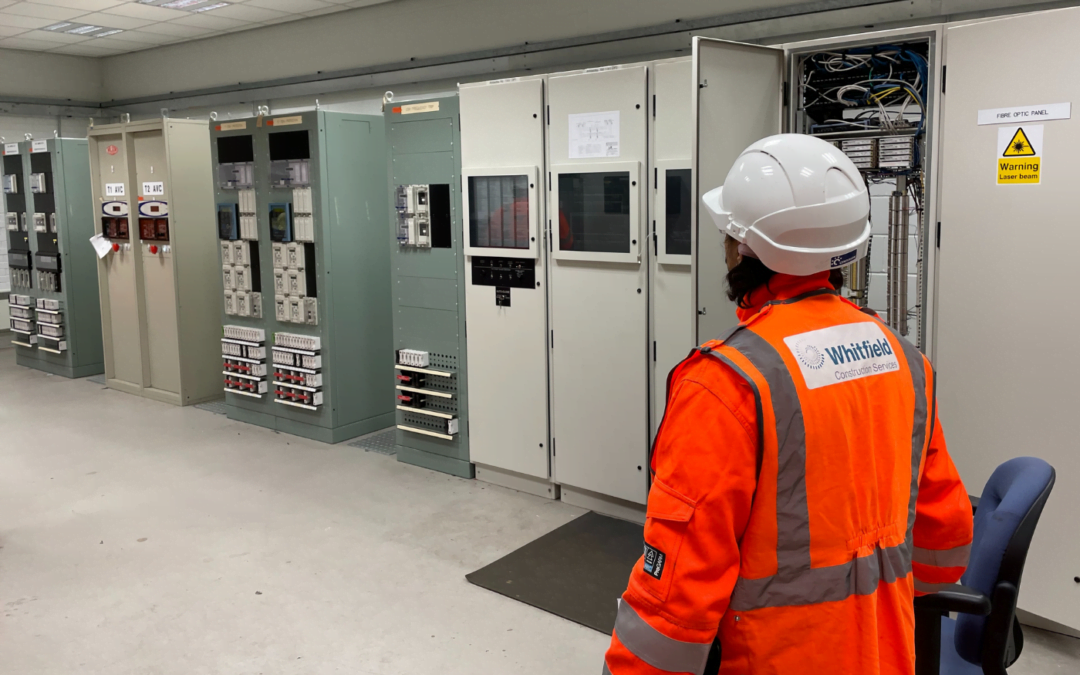Those commissioning or overseeing major engineering projects face high pressure to ensure all is completed smoothly. Whitfield Consulting Services (WCS) is familiar with situations where partners look to us to lift burden from their shoulders; in this piece, we explore ways in which we support our clients beyond the contractual.
Measure twice cut once
The more that can be verified before construction begins, the higher confidence all partners will have that the project will proceed correctly. WCS is an advocate of the approach of involving design consultants as early as possible in a project’s life as we know from experience how valuable this early input from all disciplines can be.
Additionally, it’s very likely that we have faced similar challenges to those of your project before. “Let’s say buried electrical cables are reaching a substation and need to be brought up to terminate vertically into the equipment,” explains WCS Managing Director Asa Whitfield. “That could be done within a full cable basement, or perhaps a simpler space under an elevated substation floor. The choice could be affected by soil analysis, the presence of ground water, and also the bending radius of the particular cables involved, and how much room is needed for that. If you haven’t done many of these before, it may not be obvious which solution to pick and why. We can advise clients before plans are made, and then check plans, so everyone goes forward knowing the best solution has been chosen.”
Formal verification of procedure and compliance
Engineering works tend to be highly regulated. “On one project, your major regulatory constraint may be a statutory one such as the Building Regulations, but on the next it may be a standard put forward by a body like Network Rail, which you must adhere to,” adds Asa. “We can advise on what’s required for compliance, as well as what makes effective engineering. Our activity is guided by our own written, formalised design management process, too. If our client’s client wants reassurance about the works, we can on any day of the project show them both formal procedures in principle, and also the paper trail of where we currently stand with respect to those.”
For another example of how WCS supports clients with formal verification, please see our recent piece on cable pulling calculations.
Assuming additional responsibilities
Senior engineers at WCS such as Nick Lowe are regularly nominated and accepted to perform roles such as Temporary Works Coordinator, or Lead Civil Engineer. These are cases where our direct client has asked us to handle a position which typically reports to their client and involves acceptance of formal responsibilities for the whole project, trusting that our sector-expertise and corporate culture makes us the right choice.
If you think this might be a way we can support you, please feel free to ask for examples or client references.
No substitute for boots on the ground
“I’d say it’s a part of the company ethos that we’re keen to get on site,” comments Asa. “That’s the way to see the physical constraints, and to check that reality matches theory, as well as to talk to clients. For example, part of our formal design process is to assess how specified equipment will be brought on site, and we use tools like AutoTrack to do that. But good though the tools are, again and again we find that the best place to have those discussions is standing where the turning circle actually has to be, or whatever the factor in question.”
A responsive, partnership approach
In a recent piece exploring why WCS has grown so quickly, we identified agility and collaboration as qualities partners mentioned positively across multiple projects. “Sometimes the constraint with the largest design firms is that nothing can happen without a sequence of sign-offs that can’t be expedited,” says Asa. “We pride ourselves on being customer-focused. If the client asks whether something might be a good way of proceeding, we think about whether it would be, rather than checking whether that’s what is mentioned in the agreed scope of works.”
Additionally, WCS is frequently involved in maintenance framework contracts and call-outs for emergency works. We’re used to mobilising quickly to site, as well as responding flexibly to issues and opportunities arising.

To find out more about the work we do, please see our portfolio page or else contact us on 020 3581 7847, info@wcs-consult.co.uk or via our contact page.
